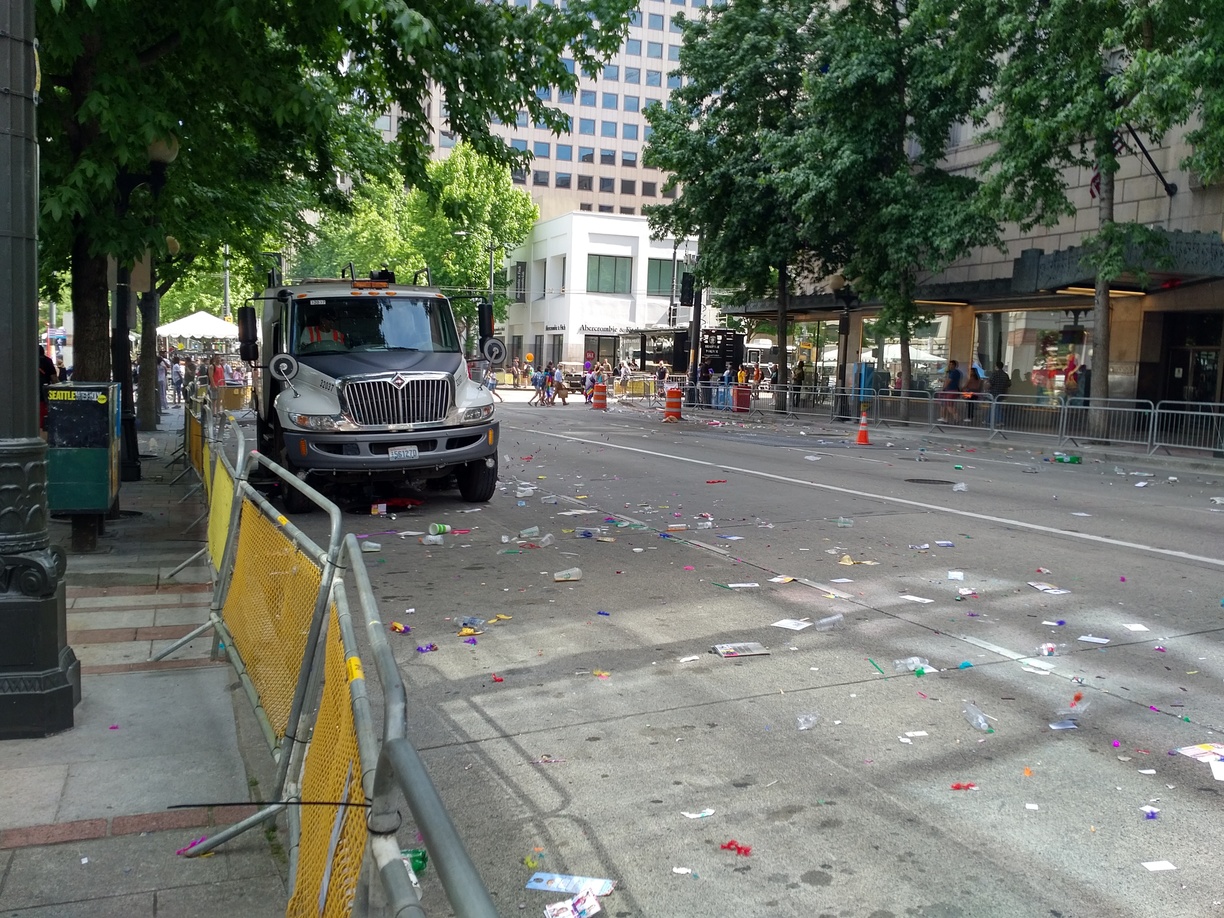The Seattle Pride Parade, PrideFest, and associated Pride events are a great Emerald City institution bringing hundreds of thousands of people together to celebrate diversity, inclusion, and love each and every summer.
While many aspects of Pride are already great and don’t need changing, there’s one area in particular where we feel there’s a lot of room for improvement, and that is environmental responsibility. Pride currently generates a lot of trash and air pollution, and we’d like to see organizers pursue strategies that would reduce emissions and the volume of material being sent to landfills.
Here are five ways Seattle Pride can become more environmentally friendly in 2018:
- Create placards for businesses along the route to put up requesting that people refrain from smoking and littering. There are too many Pride attendees who think it’so okay to light up in the middle of a crowd or toss their unwanted swag and plastic water bottles into the street. Signage could help discourage this behavior, especially if accompanied by regular announcements from reviewing stands and ads on social media featuring respected regional icons like Macklemore, Felix Hernandez, or Rick Steves.
- Request that organizations submitting entries to the parade use electric vehicles and solar generators. Internal combustion engines generate significant amounts of air pollution (as well as some noise pollution). Electric vehicles and solar generators, on the other hand, are quiet and don’t have tailpipes emitting carbon monoxide and other noxious gases. The air quality at the event would be improved if the burning of fossil fuels was minimized. (Cleanup crews should use electric blowers, too.)
- Provide clearly-marked water stations where paradegoers can easily get reusable water bottles refilled. I brought my Kleen Kanteen and sipped from it all afternoon, but with the exception of the volunteer-operated water station outside of First United Methodist Church at the end of the route, I didn’t see any place where I could get it refilled. Disposable plastic water bottles are extremely wasteful and we need to cut down on their use. If water stations are made available and people know about them, they will be more inclined to bring their reusable bottles. Platypus-style water pouches provided by a sponsor could be given away at these stations too.
- Enforce the rule against tossing candy, trinkets, confetti, or anything else — especially from moving vehicles. The guidelines for the Pride Parade already say quite explicitly that “nothing may be thrown or tossed by your contingent (this includes small candies, trinkets, etc).” Any materials for distribution are supposed to be handed out directly to parade spectators. It’s a sensible restriction. Sadly, this rule is flouted every year. With better education and robust enforcement, we’d have an event that would end with less trash in the street. And the event would be safer, too.
- Provide recycling and composting receptacles along the parade route and at all Pride events so that fewer items go to the landfill. Clear and simple instructions must be posted next to all receptacles, or else there’s not much chance of them being used properly. Having volunteers on hand to provide guidance on receptacle use would be ideal. Sometimes people just need to know what to put into what container.
And finally: Pride should assemble a “Green Team” of volunteers dedicated to implementing the above strategies and additional ideas that will make Pride a more environmentally responsible institution. Cleanliness and public health need to be emphasized the way safety has been. That’s why it would make sense to put together an enthusiastic crew of people focused specifically on reducing/eliminating waste and pollution. People’s behavior can be changed — but it takes work.

